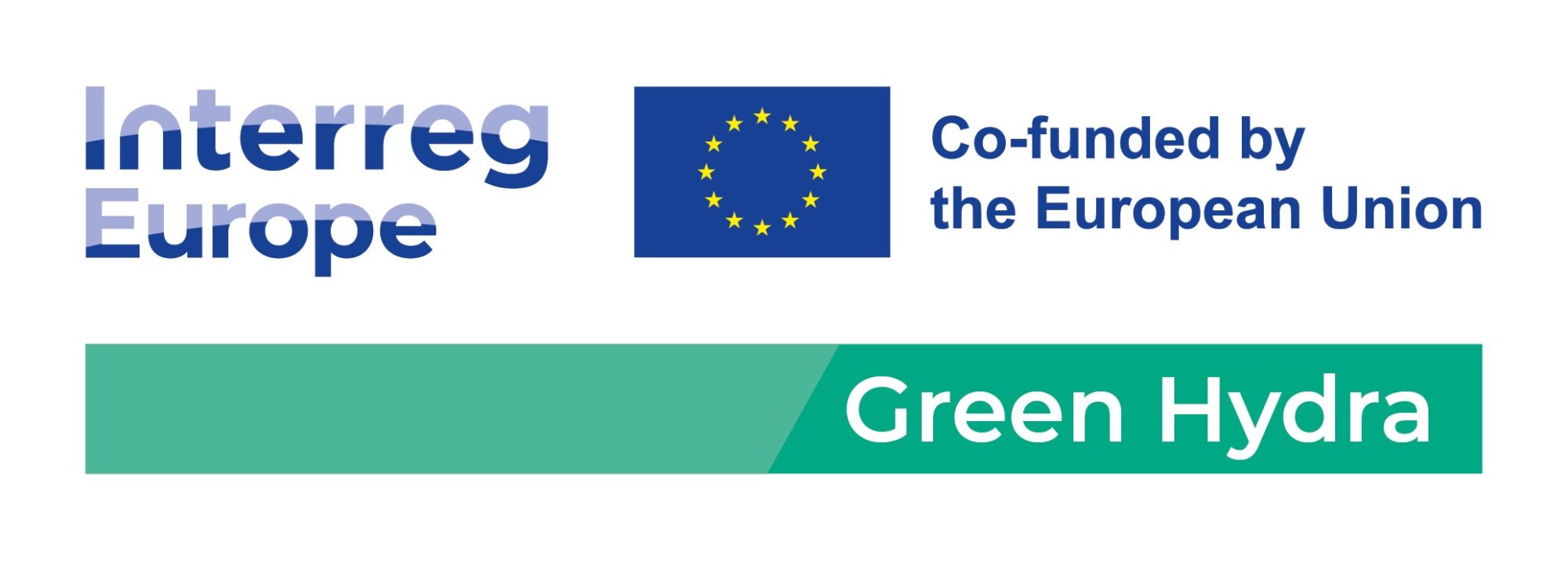Green Hydra

About project
There is an urgent need for carbon abatement solutions at scale and the green hydrogen industry is ‘a lifebuoy of hope’.
Green hydrogen is expected to play an important role in achieving EU objectives to reduce greenhouse gas emissions by a minimum of 55% by 2030 and reach net zero emissions by 2050. Achieving these ambitious objectives requires transformational change and the full mobilisation of industry.
As the adoption of green hydrogen increases in large corporations, with a green hydrogen market worth $11 trillion by 2050, it is also becoming essential to engage SME’s, forming 99% of businesses in Europe, as part of the process.
Although the economic complexity of the infrastructure may act as an impediment for SMEs, they could become an important component of the green hydrogen growth engine if they are supported in the domain of ancillaries around the green hydrogen ecosystem.
Investments in research and development, and in pilot projects, are growing considerably as countries and regions seek to take a leading role in the green hydrogen economy. This will have high potential to boost economic development, competitiveness and job creation. Therefore, public authorities together with other quadruple-helix players should look to improve support policies and initiatives for ensure linking green hydrogen development with SMEs.
Thereby, it will be crucial to further shape up, develop and master different levels’ policies for facilitating the participation of SMEs in local, regional and national green hydrogen economies.
Green Hydra will intervene on improving local, regional and national policies in 10 EU regions – from front-runner regions to lagging regions – to plan and establish support initiatives and measures for green hydrogen development business opportunities for SMEs, from research programmes to development strategies, awareness-raising schemes, and pilot investments especially focused on involvement of SMEs across the whole hydrogen value chain, including R&D, engineering, manufacturing, consultancy, design.
The purpose of the project:
Green Hydra will engage in improving local, regional and national policies in 10 EU regions, from leading regions to lagging regions, to plan and build support initiatives and measures for green hydrogen development business opportunities for SMEs, from research programs to development strategies, awareness-raising schemes and pilot investments , specifically targeting the involvement of SMEs throughout the hydrogen value chain, including R&D, engineering, manufacturing, consulting and design.
Project activities
- Study the conditions for the use of green hydrogen in the main sectors involving SMEs;
- Identification of possible key factors to activate the involvement of SMEs in the green hydrogen value chain;
- Support the creation of a production chain involving SMEs;
- Developing new skills, knowledge and communication in green hydrogen SMEs;
- Facilitate SMEs’ access to finance in the field of green hydrogen;
- Scaling up innovation in SMEs related to green hydrogen products and services.
Detailed description
Urgent and ambitious solutions are needed to reduce carbon emissions, and the green hydrogen sector is seen as a “lifeline of hope.”
Green hydrogen is expected to play a significant role in helping the EU achieve its targets of reducing greenhouse gas emissions by at least 55% by 2030 and reaching net-zero emissions by 2050. To meet these ambitious goals, change and full industry mobilization are necessary.
As the adoption of green hydrogen grows among large corporations — with the green hydrogen market projected to reach a value of USD 11 trillion by 2050 — it is also crucial to involve SMEs (small and medium-sized enterprises), which make up 99% of businesses in Europe.
Although the economic complexity of infrastructure may pose a barrier for SMEs, they could become an essential part of the green hydrogen growth engine if supported by enabling components of the green hydrogen ecosystem.
There is a notable increase in investments in research and development, as well as in pilot projects, as countries and regions strive to take the lead in the green hydrogen economy. This has great potential to drive economic growth, competitiveness, and job creation. Therefore, public authorities, together with other ecosystem stakeholders, should aim to improve support policies and initiatives to ensure that the development of green hydrogen is linked with SMEs.
Thus, it will be very important to continue building, developing, and implementing policies at various levels to promote the involvement of SMEs in the local, regional, and national green hydrogen economy.
Partner countries
Italy, Bulgaria, Poland, Latvia, Spain, Ireland, Cyprus, Norway, Croatia, The Netherlands, Slovenia
Partner organizations
Lead partner:
- Ravenna Municipality (Italy)
Project partners:
- Business Agency Association (Bulgaria)
- Lubelskie Voivodeship (Poland)
- Seville Official Chamber of Commerce, Industry and Navigation (Spain)
- Donegal County Council (Ireland)
- Nicosia Development Agency (Cyprus)
- Municipality of Sogndal (Norway)
- Croatian Hydrocarbon agency (Croatia)
- Hanze University of Applied Sciences Groningen (The Netherlands)
- Regional development agency for Podravje – Maribor (Slovenia)
- Latvijas Tirdzniecības un rūpniecības kamera (Latvia)